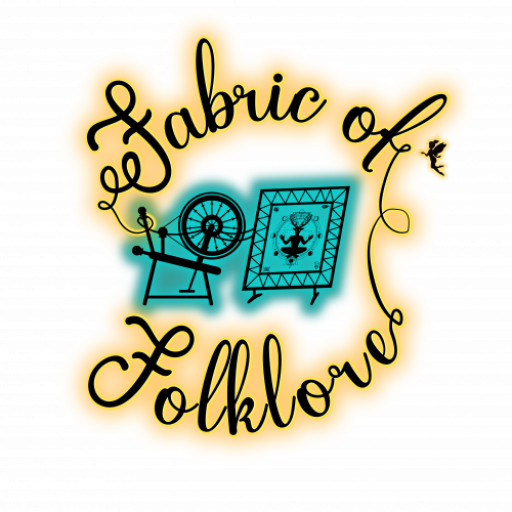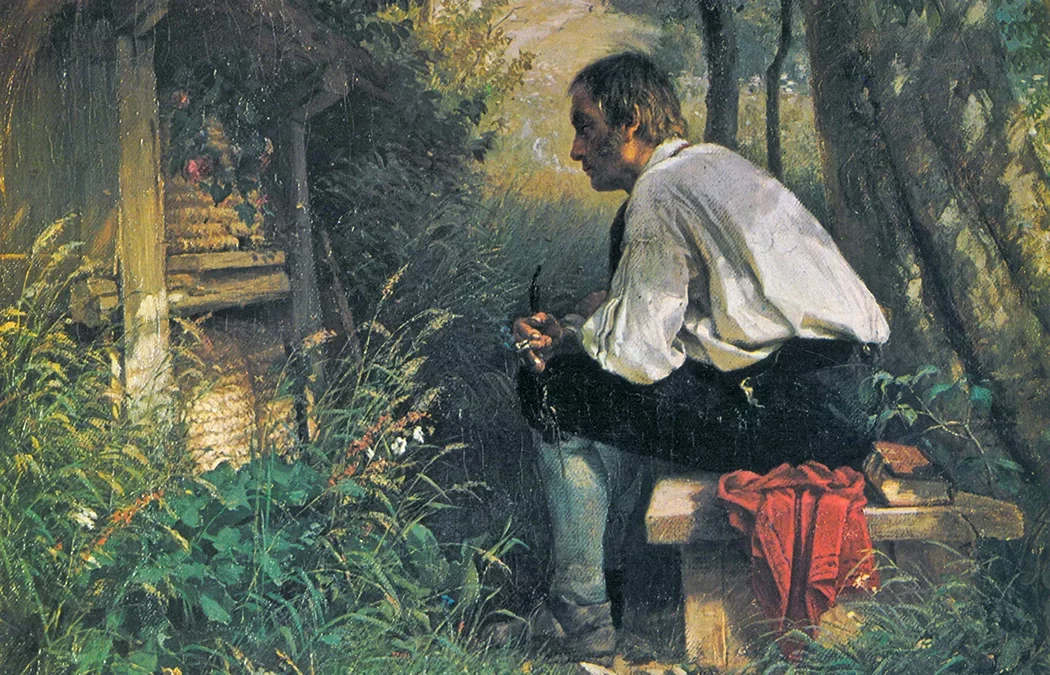The Folklore of Telling Bees About Life Event
One of the more interesting traditions performed when the longest reigning monarch of England, Queen Elizabeth II, died was one that involved the royal ground’s beehives. An ancient tradition of “telling the bees” with origins in ancient Celtic and European traditions involving communicating important events to the resident bee colonies. This folklore, rooted in the belief that bees possess a unique sensitivity to human emotions, has a rich history that stretches back centuries and can still be found in different pockets of the world today.
This folklore custom came up when chatting with Liz Pearson of Chalk Horse Music in Episode 26. The title of one of her more popular songs is called, Telling of the Bees, and she explained the origins of this hauntingly beautiful song.
“The telling of the bees actually came into the news last year in the UK because when the queen died, the Queen’s beekeeper told the bees about the Queen’s death and so a lot of people got interested in this old practice again. You might go out to your bees and knock on the hive and cover them with a black cloth to show that somebody had died or you might take them a bit of Christmas cake, wedding cake or a christening cake or something for a celebration. The idea being that you included them in the family because if you didn’t they might fly away. It’s not so odd, I don’t think, that you would talk to livestock, really right? Working with them everyday, I would imagine that it would be a natural practice for you to just want to chat along. You can also see how superstition would be attached over time…The telling of the bees song was also about a woman who died and her mother was a beekeeper and I don’t really mention her in the song, but for me she’s at the heart of the song because she was a freedom fighter and so I admired her integrity. It was hidden in the song but she’s there.”
Liz Pearson (episode 26)
For generations, beekeepers across Europe have shared significant news with their bees. It was believed that the bees were aware of the family’s emotions and would only thrive if they were treated as extended family.
A Time-Honored Tradition
The practice of Telling the Bees, though rooted in folklore and superstition, reflects the deep connection between humans and bees that has persisted for centuries. Beekeepers believed that the bees held the power to foretell events, and so, they shared with them moments of joy and sorrow. Births, weddings, and deaths were all communicated to the bees, ensuring that they remained informed and, in return, would continue to produce honey and pollinate crops.
The custom of telling bees about significant life events can be traced back to ancient civilizations, with records dating as far back as ancient Egypt and Greece. It also has origins in Celtic mythology where the presence of a bee after a death signified the soul leaving the body. However, it gained particular prominence in European folklore during the Middle Ages and the early modern period. The belief was that bees, as industrious and community-oriented insects, were highly attuned to the emotional state of their beekeepers and their families. Informing the bees of important occurrences was thought to maintain the harmony of the hive and ensure the continued health and productivity of the bee colony.
Not performing the ritual was believed by some to result in dire consequences. A Victorian biologist, Margaret Warner Morley cited a case in Norfolk where a man purchased bees at an auction. However, upon his arrival, he discovered that the bees were sickly. He then realized that the bees hadn’t been told of the death of their previous owner, so he draped the hives in black cloth, and the bees regained their health. Other bee-keepers told similar stories of entire bee colonies dying if the family did not perform the ritual and notify the bees of important occurrences.
Locations of the Tradition
Telling the bees was most commonly practiced in European countries like England, Ireland, and Germany. In these regions, beekeepers would approach their hives and softly speak the news or sing a special song to the bees. The tradition also found its way to North America through European settlers, where it persisted among communities in the United States and Canada, particularly in New England and the Appalachian region.
Is It Still Practiced Today?
In the modern era, the tradition of telling the bees has largely faded into obscurity. The industrialization of agriculture, changing societal norms, and a decrease in the number of people keeping backyard beehives have contributed to its decline. However, there are still pockets of enthusiasts and beekeepers who maintain this age-old custom as a gesture of respect for the bees and the environment. Some believe that it can help establish a connection with nature and promote bee conservation efforts.
Scientific Evidence?
Unfortunately there are no studies to prove or disprove this thoughtful custom. What we do know about bees is that they are sensitive, they have good memories, and can recognize faces. Studies have found that bees can respond to changes in temperature, humidity, and even sound vibrations. This sensitivity to environmental cues suggests that interacting with bees and maintaining a calm and positive presence around them might have a positive impact on their overall well-being. They also recall particular floral blooms for collecting pollen and recognize specific, frequently seen human faces.
So although we don’t know that telling the bees important life altering events affects the bees either way, the practice is a reminder that we exist together on this planet. And that we depend on them for much of our food. We humans and bees inhabit this world together, and the bees deserve our respect, whether that involves considering them members of the family and sharing our emotional events with them, or finding other ways to show them they are important to us.
(Image credit The Bee Friend, by Hans Thoma, 1863/1864 via Wikimedia Commons)
Had you heard of this tradition? If you were a beekeeper, would you continue this tradition? Tell us in the comments.


I’m a beekeeper of 40+ years and this is the first time I’ve heard of this.
I do know that most bees calmed down with a Beekeeper that is calm and gentle.
I’m going to try this talking that is mentioned about family occasions to the bees. Won’t hurt.
Thankyou for the article.